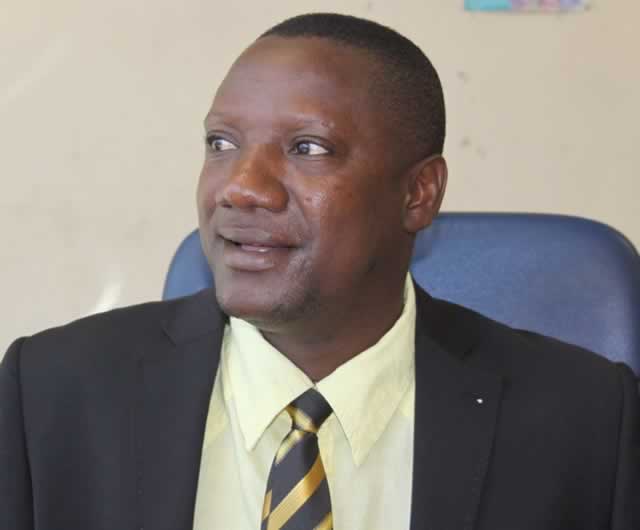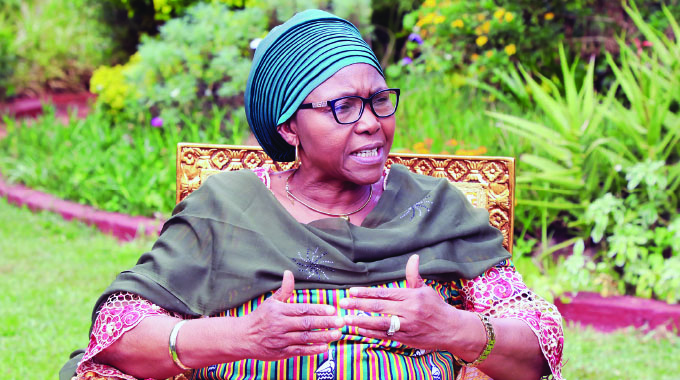Auditor General’s Office to oversee Command Agriculture finances

Felex Share, Harare Bureau
The Command Agriculture programme will be subjected to an audit by the Auditor General’s Office to ensure transparency and accountability, the Ministry of Finance and Economic Development has said.
This comes amid revelations that by the end of June, $2,4 million of $32 million disbursed for maize deliveries by the Grain Marketing Board had been recovered from Command Agriculture farmers.
The money is being deposited into the Command Agriculture Fund at a local bank.
The fund, which was established last year and approved by Parliament, is being administered by the Ministry of Agriculture, Mechanisation and Irrigation Development.
Documents obtained from the Ministry of Finance and Economic Development yesterday revealed that Command Agriculture would be audited by the country’s supreme audit institution, the Auditor General’s Office.
The office is mandated by the Constitution to inspect accounts, financial systems and financial management of all departments, institutions and agencies of government and local authorities.
“Within three months following the end of each financial year, the secretary for Agriculture, Mechanisation and Irrigation Development shall submit to the Auditor General, financial statements and other relevant information for audit as required under the Public Finance Management Act and as directed by the Treasury,” the Ministry of Finance and Economic Development said.
“All monies recovered from the beneficiaries under Command Agriculture Scheme are accounted for under the Command Agriculture Fund approved by Parliament for the purpose. The Command Agriculture Fund was established in November 2016, and is administered by the Ministry of Agriculture, Mechanisation and Irrigation Development with recoveries maintained by Agribank. Furthermore, all recoveries under this fund are subject to internal audit by staff from the line ministry.”
This is far from claims by Higher and Tertiary Education, Science and Technology Development Minister Professor Jonathan Moyo that the programme lacked accountability.
He claimed there were no monitoring and evaluation mechanisms.
Prof Moyo, a beneficiary of the programme, has been attacking the programme daily on social media alleging abuse of funds.
He has also tried to divide Government officials on the issue, bringing in succession politics into play.
Command Agriculture, which President Mugabe has described as “beautiful” is the brain child of First Lady Dr Grace Mugabe aimed at ensuring food security.
It was adopted by Cabinet with Vice President Emmerson Mnangagwa being assigned to supervise its implementation.
The Vice President chairs the Cabinet Committee on Food Security and Nutrition.
Command Agriculture is one of the quick-win deliverables under Zim-Asset’s Food Security and Nutrition Cluster.
It is also encapsulated in President Mugabe’s 10-Point Plan under the goal: “Revitalising agriculture and the agro-processing value chain”.
The Ministry of Finance and Economic Development said beneficiaries of the programme had begun paying back what they owe with peak deliveries expected next month.
“To plug any repayment leakages, for those farmers whose stop order forms are still to reach the GMB, 80 percent of the value of maize delivered by the farmer is retained by GMB for depositing into the Command Agriculture Fund until the farmer compiles by depositing the stop order form as required under the programme,” the ministry said.
The Finance Ministry said a number of private sector potential financiers made submission of expression of interest to support the programme but some were offering unfavourable terms and conditions.
Government settled for Sakunda Holdings which funded the programme together with the Presidential Input Scheme to the tune of $192 million.
Government offered security on behalf farmers through non-tradable Treasury Bills.
“In this regard, total expression of interest, inclusive of those from banks and insurance and pensions sector amounted to over $1 billion,” the Ministry of Finance and Economic Development said.
“Terms and conditions varied with interest pricings of up to 12 percent.”
The interest rate on the Sakunda Holdings facility was five percent and was approved by Cabinet on October 3 last year.
On monitoring and evaluation of the programme, the Ministry of Finance and Economic Development said the Ministry of Agriculture, Mechanisation and Irrigation Development had enough mechanisms to ensure “effective utilisation of inputs, production and recovery of on-lent resources form farmers.”
The ministry said 10 provincial teams with representatives from the Ministry of Agriculture, Mechanisation and Irrigation Development, security Ministries, Office of the President and Cabinet and Ministry of Finance and Economic Development were in the field evaluating the exercise.











Comments